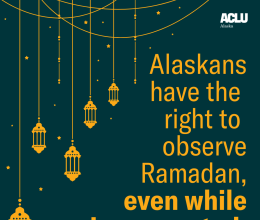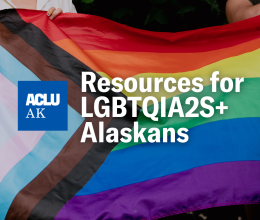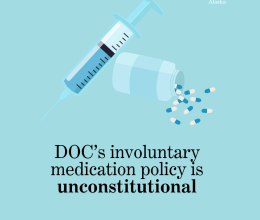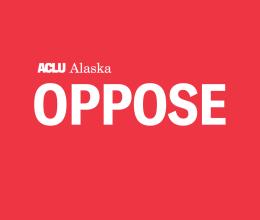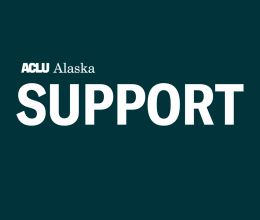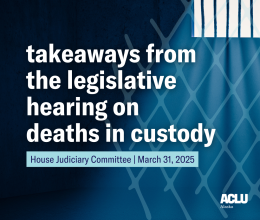
Nearly 15 years ago, the ACLU of Alaska published a Prisoner Rights Guide, a 320-page long document intended to help Alaskans know their rights while incarcerated.
In the last 15 years, case law has changed, the Department of Corrections (DOC) has issued new policies, and there are new civil rights concerns that impact Alaskans who are in custody.
With support from the Alaska Mental Health Trust Authority, we’ve revamped the Prisoner Rights Guide, and have produced them in a more accessible format. These guides have been sent inside to facilities across the state, and have been distributed to attorneys who work with people interacting with the criminal legal system.
The following resources exist in the Prisoner Rights Guide.
Grievance procedure: The Department of Corrections is required to develop a clear and responsive prisoner grievance procedure, including a formal means of delivering complaints and concerns from a prisoner to the administration and the procedures by which the prisoner receives a written response. This guide outlines the process that Alaskans incarcerated at DOC facilities must follow to address issues inside.
Medical grievance procedure: An incarcerated person may file a medical grievance regarding medical treatment if they are refused treatment by medical, dental, psychiatric, or mental health staff, whether salaried or contract service personnel; if DOC refuses treatment recommended by a consulting health care professional (non-Department personnel); or if the incarcerated person is recommended for treatment by a consulting health care professional and the prisoner wants that recommendation reviewed. This guide outlines the process that Alaskans incarcerated at DOC facilities must follow to address medical issues.
Religious freedom: Federal law provides special protections for incarcerated peoples’ religious exercise. This guide outlines how Alaskans can practice their religion while incarcerated, and other details regarding religious diet, property, gatherings, and group activities.
LGBTQIA2S+ rights: If an incarcerated person identifies as transgender and/or is seeking treatment or accommodations for gender dysphoria, they will have to self-identify to the Department of Correction. This guide outlines the procedures an incarcerated person will need to go through to seek a treatment plan while in custody and other rights the individual has to gender-affirming care.
Voting: Fifty percent of the prison population in Alaska is comprised of people who are pretrial, meaning their voting rights are still intact, and they can cast a ballot. And unlike many places, in Alaska, once you’re released and are no longer on probation or parole, you can vote again. This guide outlines how Alaskans can request an absentee ballot, and how they can restore their right to vote after incarceration.
Additional guides are expected to be added in 2025.
These guides are intended to help incarcerated people advocate for their rights while incarcerated at an Alaska DOC facility. Still, if the rights of incarcerated people are being violated, they can apply for legal assistance through the ACLU of Alaska’s Legal Intake Form or by sending a letter to the ACLU of Alaska C/O Prison Project, 1057 W Fireweed Lane St 207, Anchorage, AK 99503.
